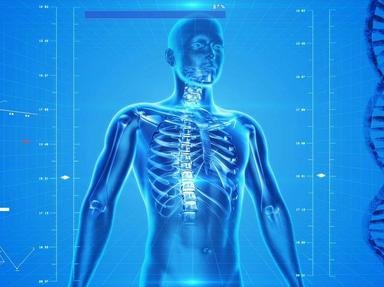Quiz Answer Key and Fun Facts
1. Human bodies are primarily made up of which vital fluid?
2. Nietzsche said men would all think they were gods if not for the tummy. Which sticky, sometimes embarrassing or annoying body fluid might likewise decrease human vanity? (Achoo!)
3. A complex set of hormones produces the first nourishment for human newborns. What is secretion of milk called?
4. We use lotions, pads, blocks, Botox and sometimes medications to stop this bodily fluid from showing. But for most of us, which emission is a healthy one? We enjoy it on a runner or a football player.
5. Which bodily fluid is much enjoyed by many, as it facilitates romantic kissing?
6. Related to the human body, the terms excretion and secretion are synonyms.
7. Which bodily fluid is often green, secreted by the liver, stored in the gallbladder and poured into the small intestine?
8. There's a bodily fluid which humans may produce as they look at a stunning sunset, a beloved face, or the results of a hurricane. What do we call fluids that 'fall' down the face?
9. The body fluid urine is the result of tireless processing and filtering by which organ?
10. A vital function of blood is to transport which gas around the body to the cells?
Source: Author
Godwit
This quiz was reviewed by FunTrivia editor
rossian before going online.
Any errors found in FunTrivia content are routinely corrected through our feedback system.


